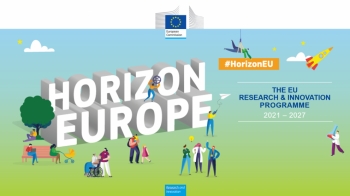From FEDA, as a node of the Enterprise Europe Network, and through the Provincial Equality Observatory, we inform you of the general guidelines on equality to take into account when presenting a European project of the Horizon Europe program, since the Commission Union reaffirms its commitment to the gender equality in research and innovation, establishing it as a transversal priority in the legal bases of its calls.
There are 3 main levels at which gender equality is considered in Horizon Europe:
Having a Gender Equality Plan (PI) becomes an eligibility criterion for certain categories of legal entities from EU and associated countries. The integration of the gender dimension in the content of research and innovation is a default requirement, an award criterion evaluated under the criterion of excellence, unless the subject description explicitly specifies otherwise. Increasing gender balance across the program is another goal, with a target of 50% women on Horizon Europe-related boards, think tanks and evaluation committees, and gender balance among research teams set as a criterion. ranking for proposals with the same score.
Mandatory requirements for an Equality Plan (PI):
It must be a public document: The PI must be a formal document signed by senior management and disseminated within the institution. You must demonstrate a commitment to gender equality, set clear goals and detailed actions and steps to achieve them.
Have dedicated resources: Resources for IP design, implementation and monitoring may include funding for specific positions, such as Equality Officers or Gender Equality Teams, as well as allocated work time for academic, administrative and management staff.
Include accommodations for data collection and monitoring: PIs must be based on evidence and sex- or gender-disaggregated baseline data collected across all categories of staff. This data should inform the PI’s goals and objectives, indicators, and ongoing assessment of progress.
Be supported by training and capacity development: Actions may include developing gender competencies and addressing unconscious gender biases among staff, leaders and decision-makers, setting up working groups dedicated to specific issues, and raising awareness through workshops and communication activities. In addition to these four mandatory requirements, there are also five recommended areas related to content that organizations can consider in their IP:
Reconciliation of work and personal life and organizational culture: IPs aim to promote gender equality through the sustainable transformation of organizational culture. Organizations must implement the necessary policies to guarantee an open and inclusive environment in the work environment, the visibility of women in the organization and externally, and that the contribution of women is duly valued. Inclusive work-life balance policies and practices may also be considered in a PI, including paternity leave policies, flexible work schedules and support for caregiving responsibilities.
Gender balance in leadership and decision-making: Increasing the number and proportion of women in leadership and decision-making positions affects all aspects of IP. Measures to ensure that women are able to assume and remain in leadership positions may include providing decision-makers with gender-specific information. Training, adaptation of the selection and appointment processes for committee staff, ensuring gender balance through gender quotas and making the membership committee more transparent.
Gender equality in recruitment and career progression: Critically reviewing selection procedures and remedying any bias can ensure that women and men get equal opportunities to develop and advance their careers. Establishing recruitment codes of conduct, involving gender equality officers on recruitment and promotion committees, proactively identifying women in underrepresented fields, and considering workload planning models across the organization can be a important measure to consider in a PI.
Integration of the gender dimension in research and teaching content: The PI should consider how sex and gender analysis will be included in an organization’s research or educational output. It can establish the organization’s commitment to incorporate sex and gender into its research priorities, the processes to ensure that the gender dimension is considered in research and teaching, and the support and capacity provided to researchers to develop methodologies that incorporate sex and gender analysis. Research funding and research execution both organizations have a role to play in ensuring this.
Measures against gender-based violence, including sexual harassment: Organizations establishing an IP should consider taking steps to ensure that they have clear institutional policies on sexual harassment and other forms of violence based on gender-based violence. Policies should establish and codify expected employee behavior, outline how members of the organization can report cases of violence, and how such cases will be investigated and sanctions applied. They should also consider how information and support is provided to victims or witnesses and how the entire organization can be mobilized to establish a culture of zero tolerance towards sexual harassment and violence. You may download the guide for equality plans in the Horizon Europe Program at the bottom of this news. If you are interested in more detailed information, or in starting up an Equality Plan in your company, register here FEDA, agreements and advantages.

